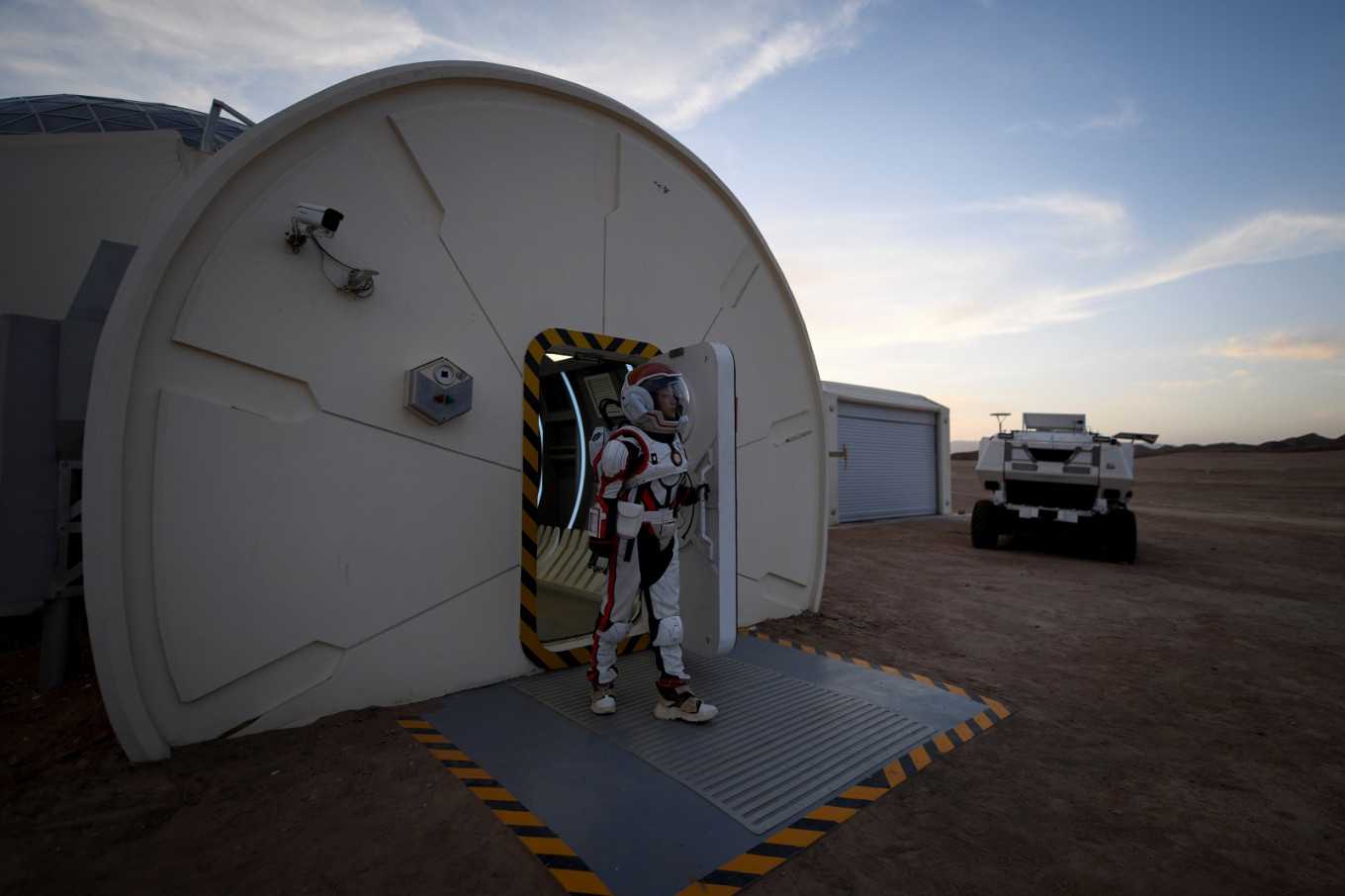China builds Asia's major steerable radio telescope for Mars mission
29 April, 2020

China is constructing the greatest steerable radio telescope in Asia with a 70-meter-diameter antenna to get data from its first Mars exploration mission which is expected to be launched this season.
China aims to complete orbiting, landing and roving on the red planet in a single mission, which has been named Tianwen-1.
The telescope, with an antenna how big is nine basketball courts, was built by the National Astronomical Observatories of the Chinese Academy of Sciences in Wuqing District of northern China's Tianjin.
It will be an integral facility to get scientific data sent back by the Mars probe, which can be up to 400 million km from Earth, and the signals will be very weak, said Li Chunlai, deputy chief designer of China's first Mars exploration mission.
China has successfully launched four lunar probes and completed orbiting and landing on the moon.
However, the distance between the moon and Earth is approximately 360,000 km to 400,000 km, as the distance between Mars and Earth is 56 million km to 400 million km. The longest Earth-Mars distance is 1,000 times that between Earth and the moon.
"Therefore, acquiring extremely weak signals from Mars will be a great challenge," Li said, adding that only a telescope with a large antenna, working in combo with three existing telescopes in Beijing and the southern Chinese city of Kunming, can know the data receiving.
The construction of the telescope commenced in October 2018 and is expected to be completed this year. Many new technologies have been utilized to improve efficiency and reduce interference noises, according to Li.
With a similar environment to Earth, Mars has turned into a hot destination of deep space exploration. Among the over 40 Mars exploration missions since 1961, no more than half succeeded.
The exploration of Mars can not only investigate whether there is or was life on Mars but also help bring to light the history of evolution and future development trends of Earth, together with search for potential liveable space for human beings, Li said.
The Tianwen-1 mission also inaugurates China's planetary exploration, Li said.
After completion, the telescope will greatly improve China's capability to receive deep space exploration data and can lay a foundation for China's future asteroid and comet probing and other planetary exploration missions, Li added.
Source: www.thejakartapost.com
TAG(s):
